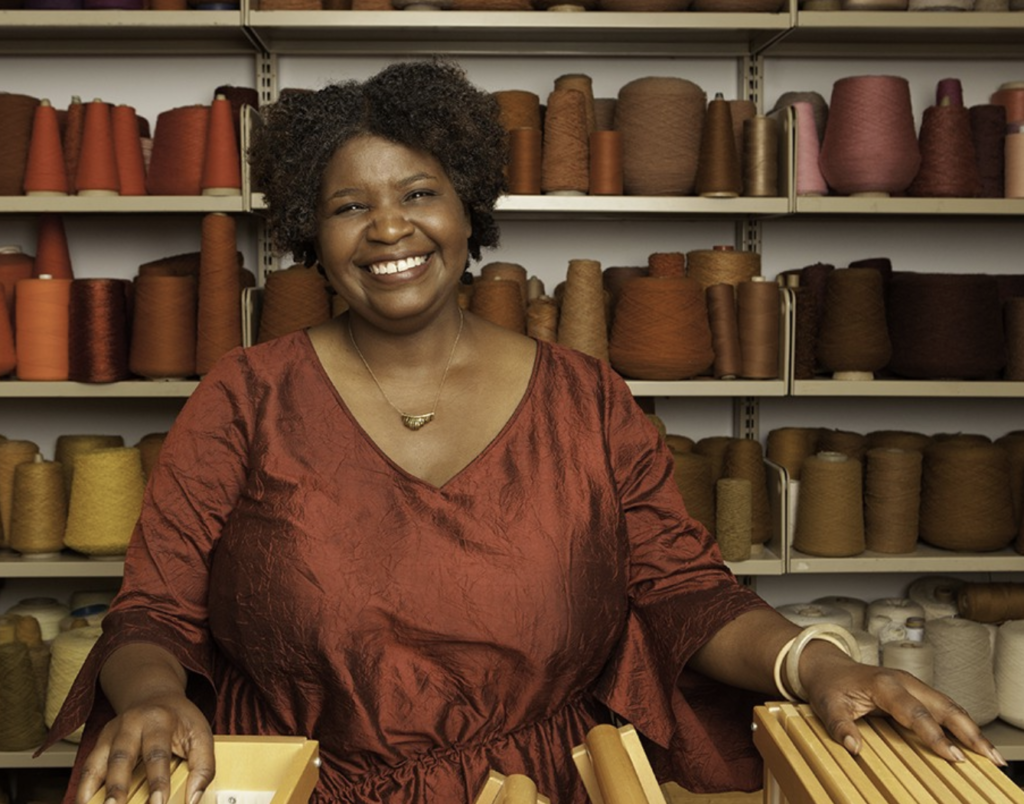
Dori Tunstall is a design anthropologist, or someone who studies how design translates values into tangible experiences. After receiving her BA in Anthropology, she obtained a Ph.D. in the subject from Stanford University. She is the first black dean of a faculty of design, and is currently working at Ontario College of Art and Design. Tunstall teaches a class that is structured around pairing students who come from different backgrounds and having them design for each other based on this. Building complexities of identities into a tangible design can be a needed acknowledgement of your existence, which is why it is one of her favorite courses.
Ethical and respectful design is at the forefront of all Tunstall does, and so one of her biggest achievements is the reformation of the curriculum at OCAD and the decolonization of its design program. She argues that decolonization is not just a metaphor, but a material reality. She says, “Opening up the space for people to contribute possibilities is part of decolonization as a community practice.” Additionally, she advocates for accountability and believes it is absolutely necessary when designing. When she was doing work with Black Youth Initiative, she made sure she was held accountable for what she was doing when working with indigenous people in Australia. The goal was to create structures that allowed indigenous perspectives to be brought to light, so she was incredibly mindful of not hindering that intention in the work she did. In so many social change design projects, there is a power imbalance between the “helper” with their monetary funds, and the “helped” who receive the end-product of the helper’s decisions. The community you are affecting isn’t able to hold you accountable for what you do in this situation, which is why Tunstall believes it can lead to design disasters and shadowing of the community in need. To remain ethical, Tunstall states we should focus on the most vulnerable. At its core, design can clarify information and aid in communication, so it should definitely be used in regards to issues like the indigenous fight for sovereignty or the elevation of feminist voices.
Another one of Dori Tunstall’s goals is “…to use design as a bridge between the differences among people, helping communicate across different languages and around different ways of seeing things.” She taught at Swinburne University in Australia for a while, and then traveled to India to produce traditional block-printed textiles to help student artists there expand their design processes within their own cultural contexts. Colonization has touched every inch of the globe, and so her work in different countries to assist artists and designers all over can be directly called back to this idea. She states, “I design the conditions of possibility,” which essentially means she structures things so people can guide themselves through a process without her eventually. Her inspirations include MP Ranjan, Saki Mafundika, and Sadie Red Wing.
Works Cited:
- Jacobs Institute. “Respecting Our Relations: Dori Tunstall on Decolonizing Design.” Medium, Medium, 6 Feb. 2019, medium.com/@JacobsDesignCal/respecting-our-relations-dori-tunstall-on-decolonizing-design-d894df4c2ed2.
- Levitt, Janna. “OCAD’s Dori Tunstall Wants to Decolonize Design Education.” Azure Magazine, 1 Nov. 2017, www.azuremagazine.com/article/elizabeth-dori-tunstall-ocad/.
- Riechers, Angela. “Dori Tunstall’s Design Journey.” AIGA, 16 Nov. 2015, www.aiga.org/diversity-inclusion-design-journeys-essay-dori-tunstall.
